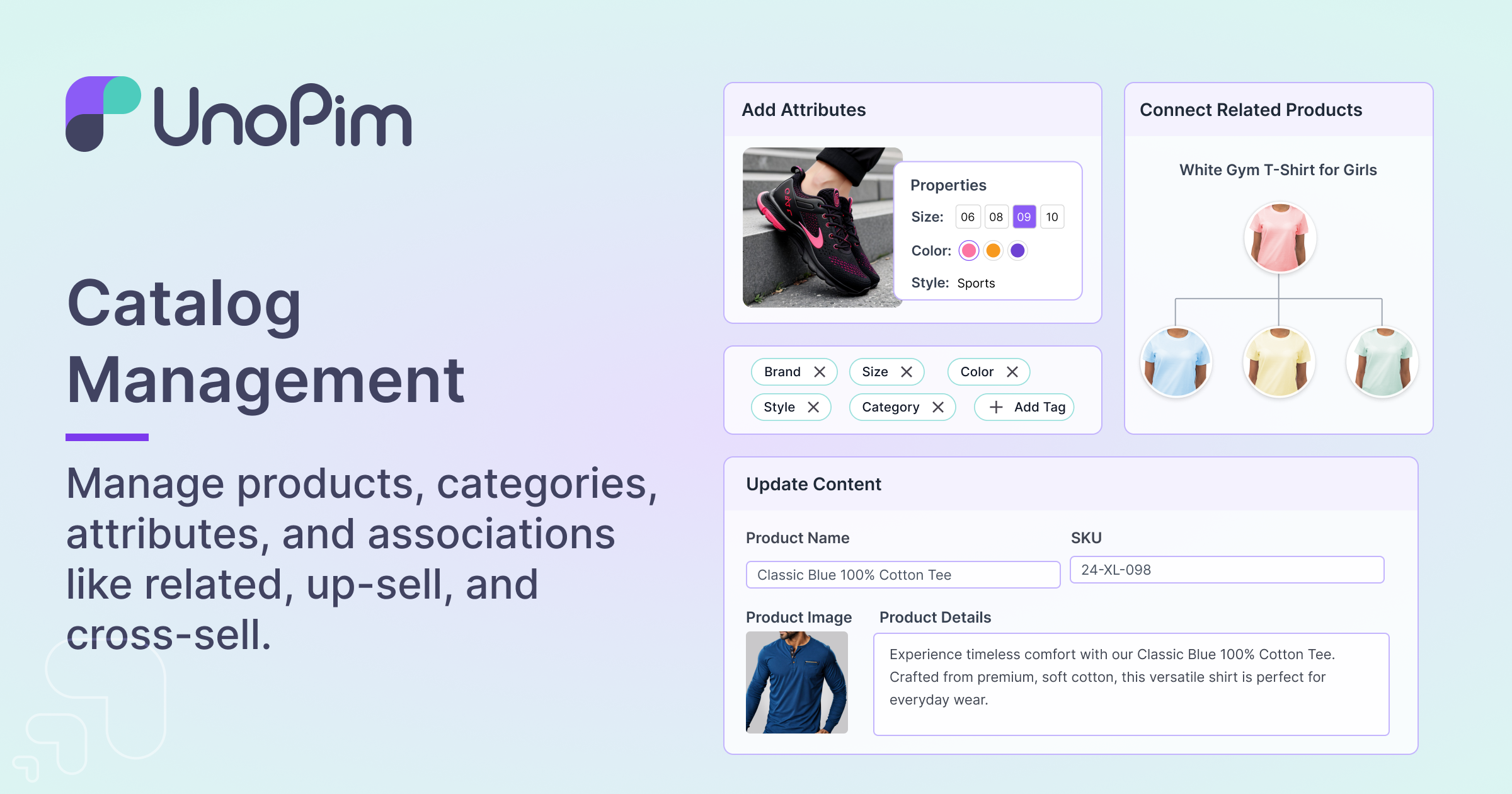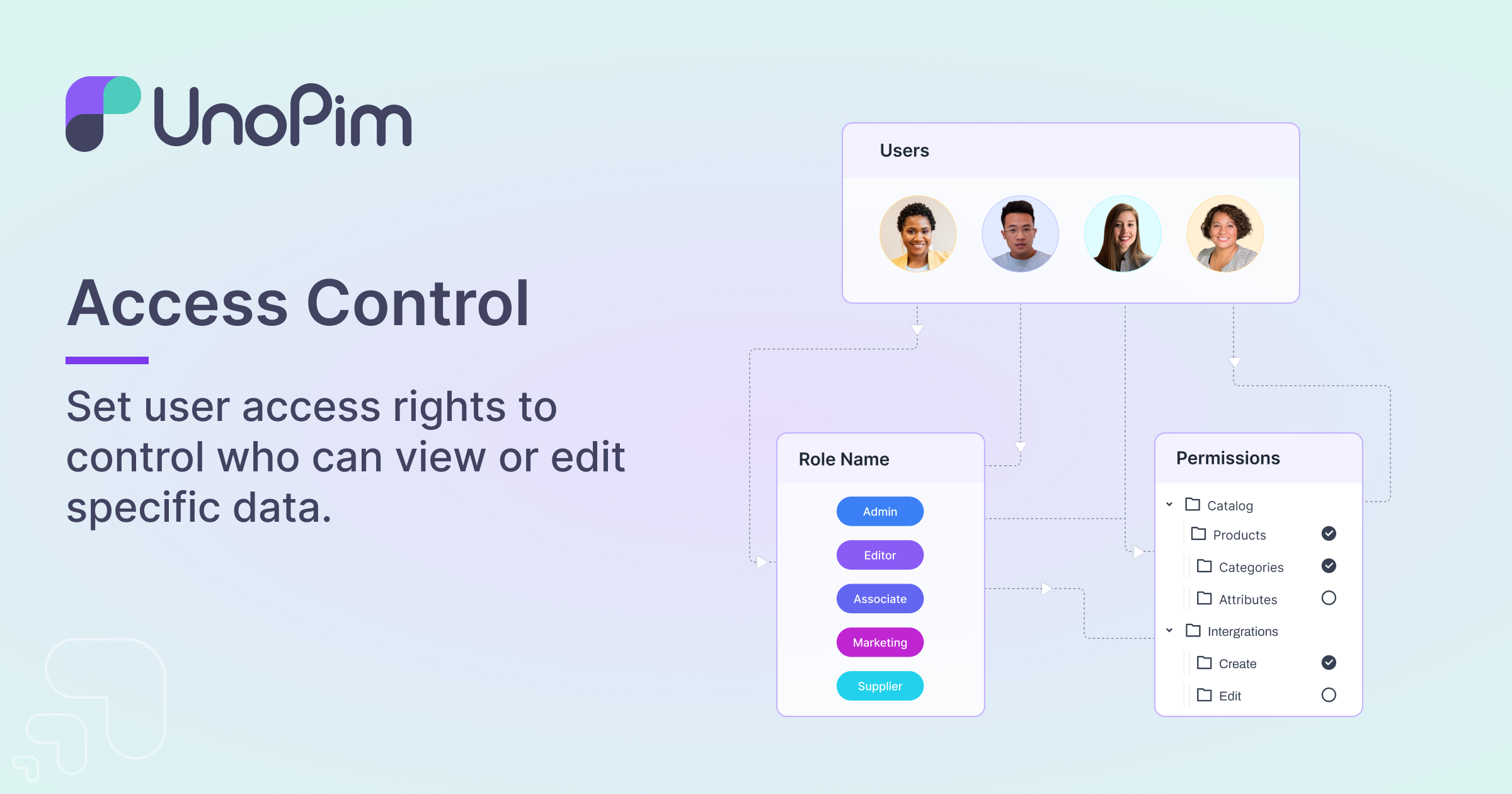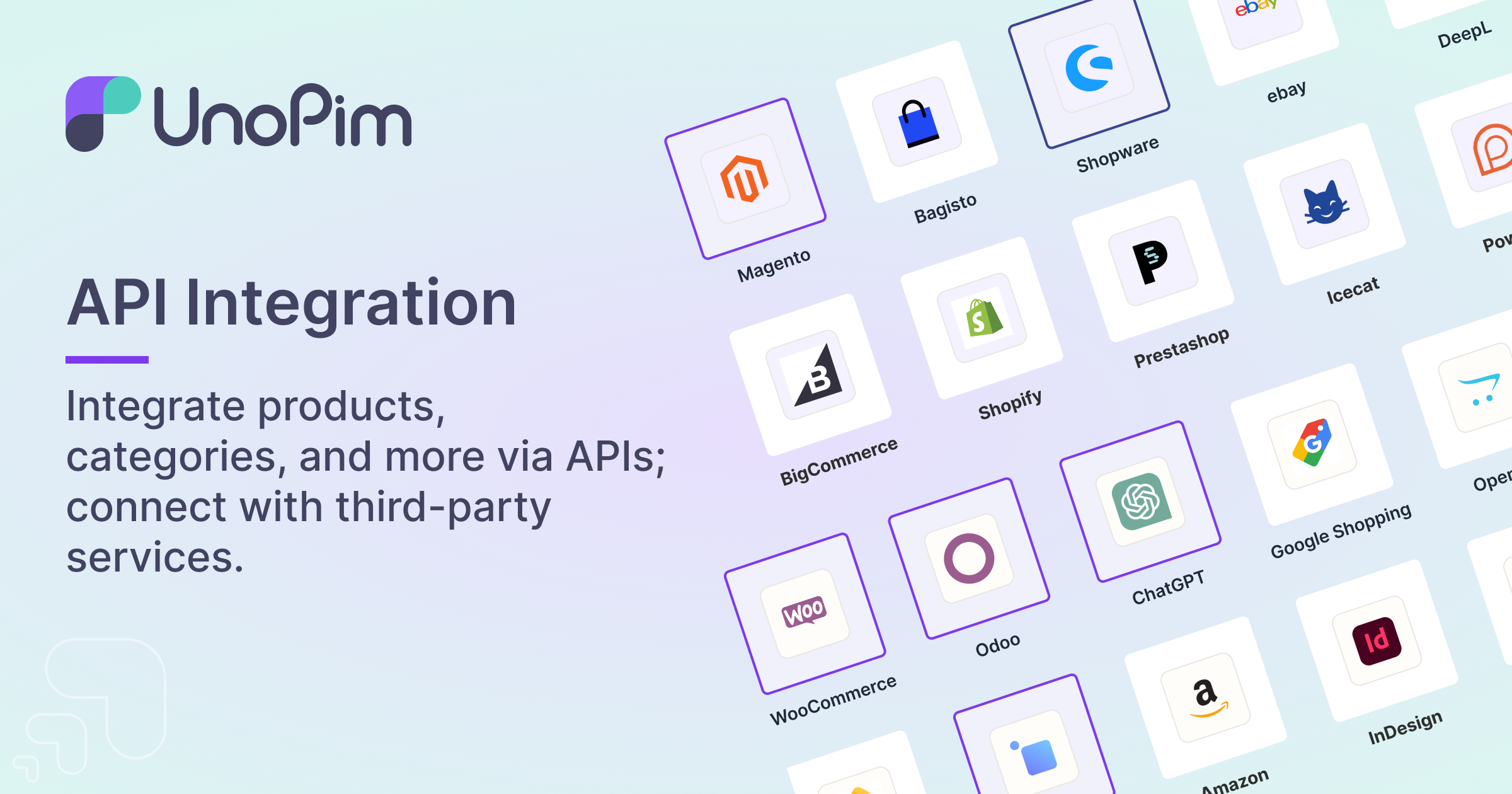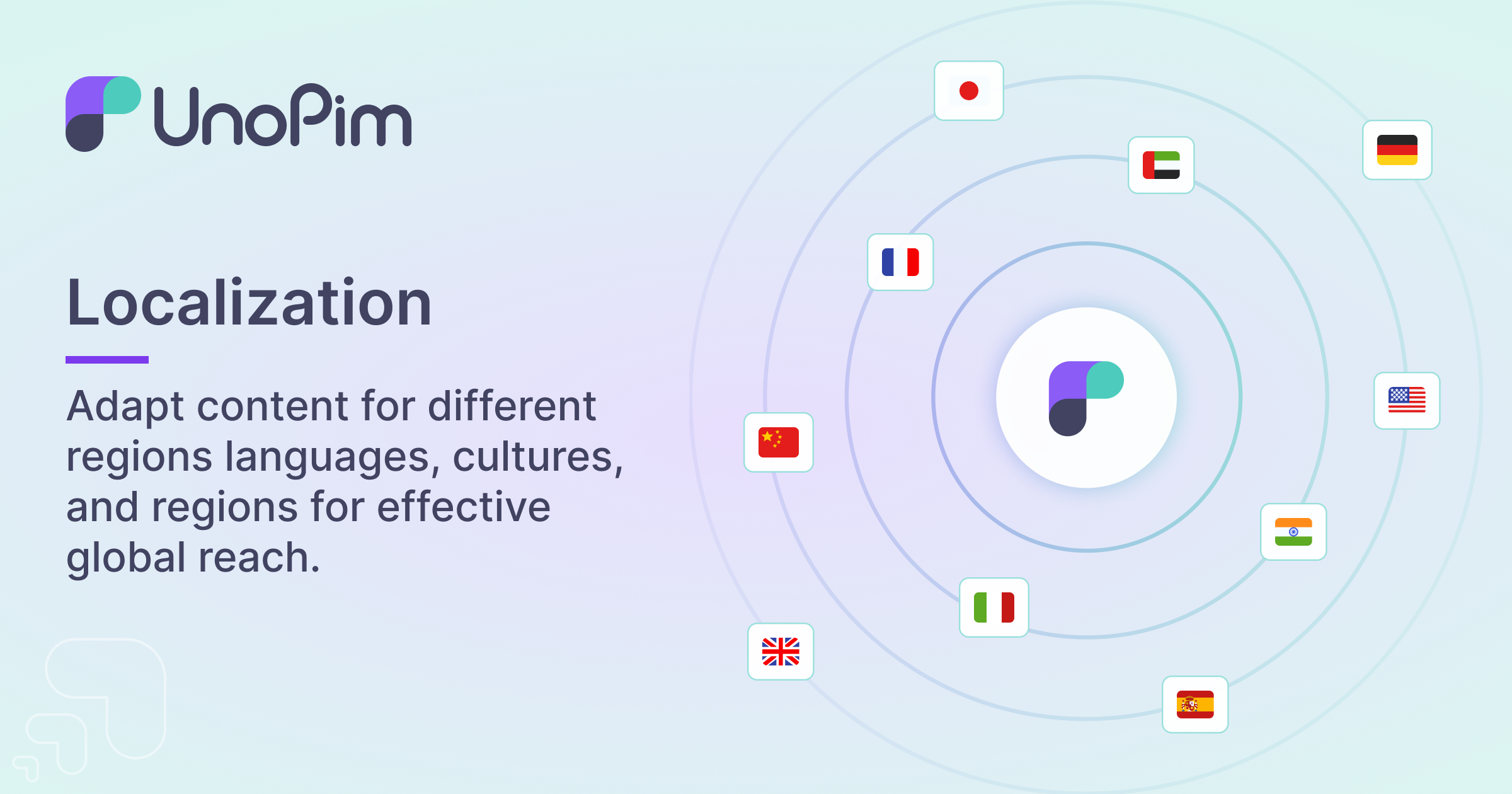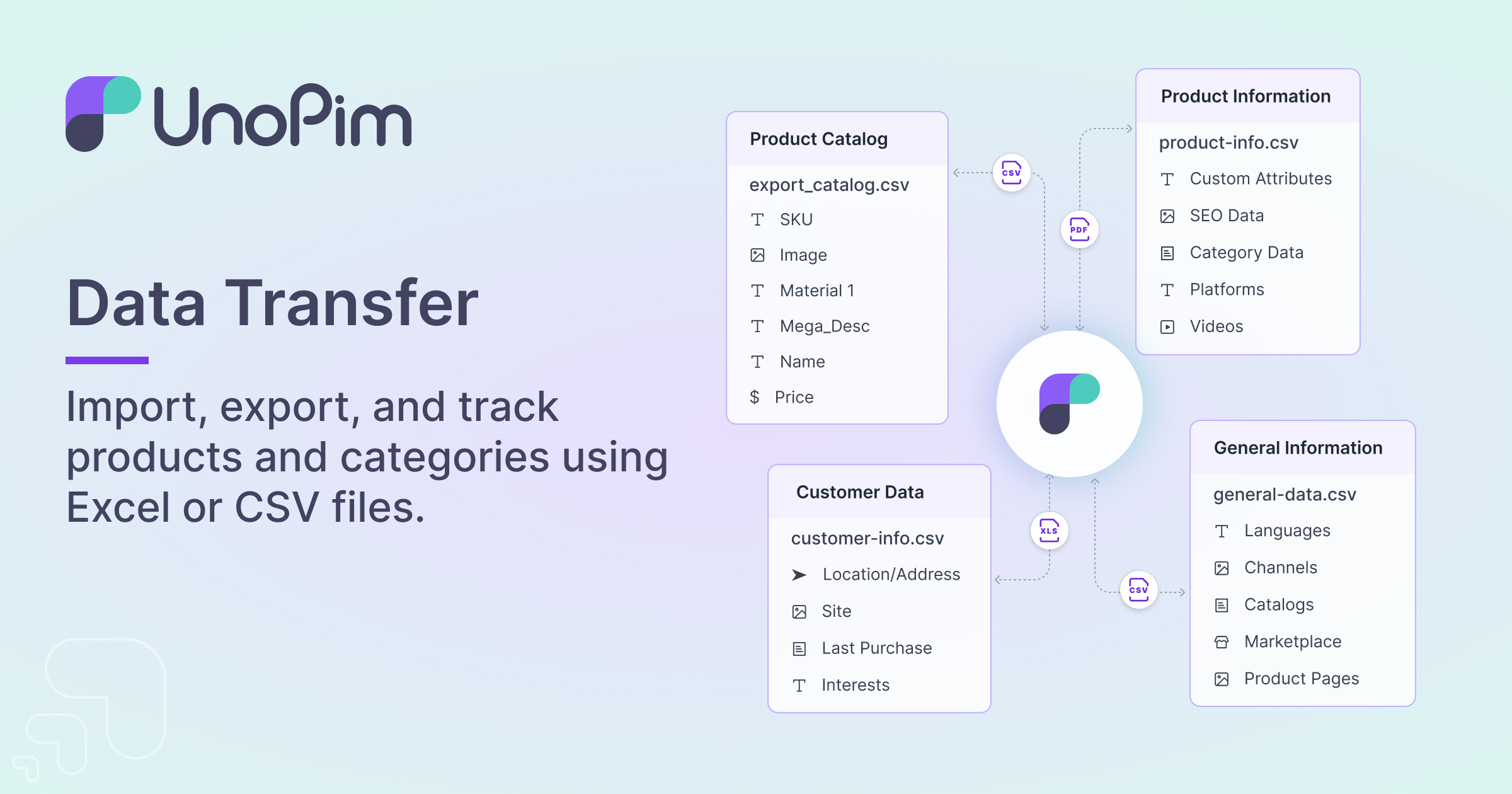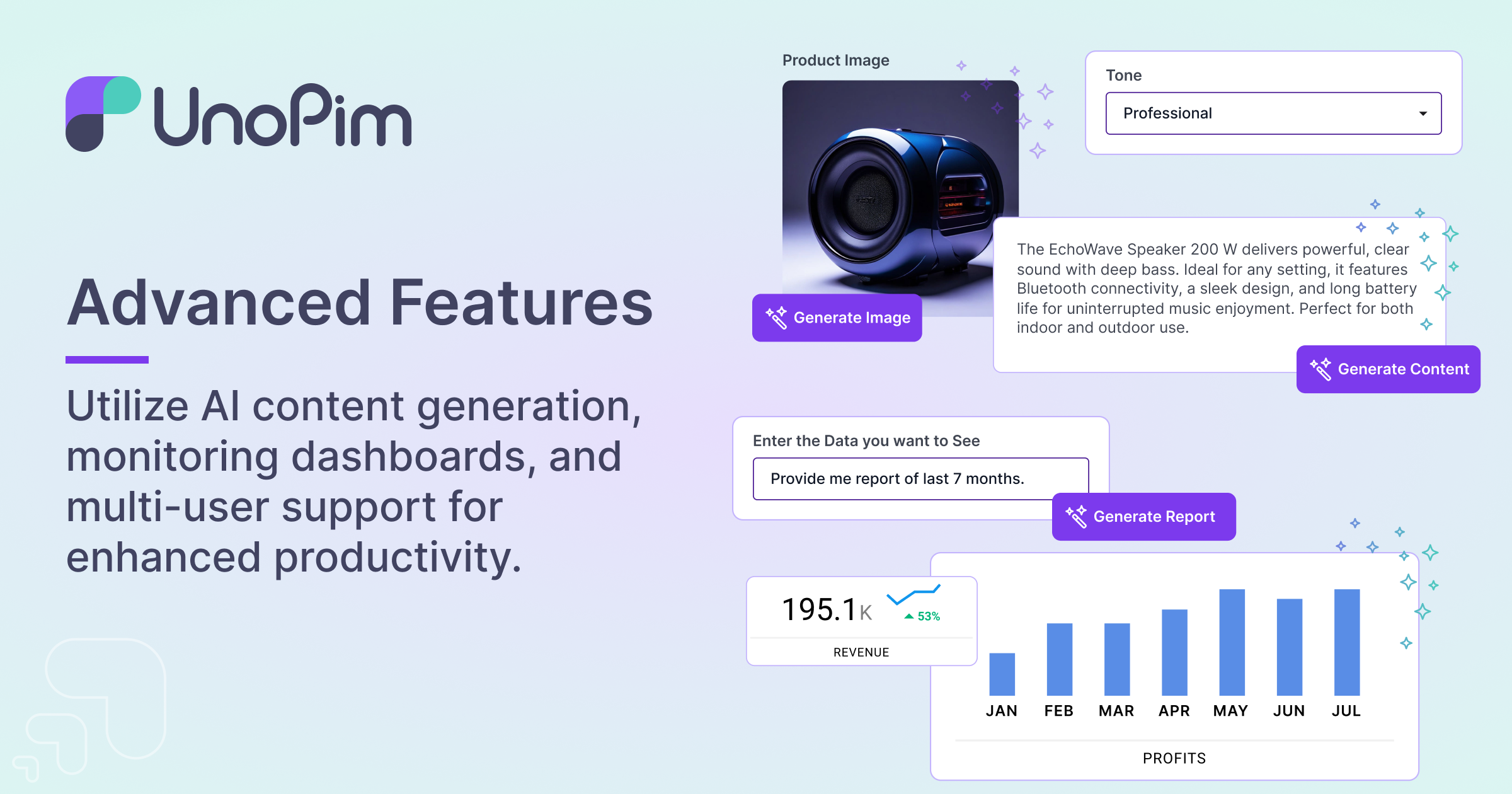UnoPim is an open-source Product Information Management (PIM) system built on the Laravel framework. It helps businesses organize, manage, and enrich their product information in one central repository.
Before you begin, ensure your server meets the following requirements:
- Server: Apache 2
- RAM: 8GB
- Node.js: 18.17.1 LTS or higher
- PHP: 8.2 or higher
- Composer: 2.5 or higher
- MySQL: Version 8.0.32 or higher
-
Centralized Product Management
Manage all your product data in one place. -
User Management
Control user access and permissions. -
API Integration
Seamlessly integrate with other systems via RESTful APIs. -
Localization
Support for multiple languages and locales. -
Import/Export Functionality
Easily import and export product data using CSV and XLSX formats, with a quick export feature for streamlined data handling. -
Magic AI for Product Content Generation
Automatically generate engaging product content using advanced LLM (Large Language Model) technology.
To get started with UnoPim, follow these steps:
-
Project Setup:
composer create-project unopim/unopim cd unopim -
Install the UnoPim:
php artisan unopim:install
-
Serve the application:
php artisan serve
-
Access UnoPim: Open your browser and go to
http://localhost:8000. -
Queue Operations To execute import/export operations, you are required to initiate the Queue command. Execute the following command:
php artisan queue:work
Once installed, you can start adding and managing your products. The intuitive interface allows you to easily categorize products, enrich product data, and manage user permissions.
We welcome contributions from the community. To contribute:
- Fork the repository.
- Create a new branch (
git checkout -b feature/your-feature). - Commit your changes (
git commit -m 'Add some feature'). - Push to the branch (
git push origin feature/your-feature). - Open a pull request.
If you discover any security vulnerabilities, please follow our Security Policy and report them to [email protected].
UnoPim is open-sourced software licensed under the Open Software License (OSL) 3.0.
We would like to thank all the contributors and the Laravel community for their support and contributions.
